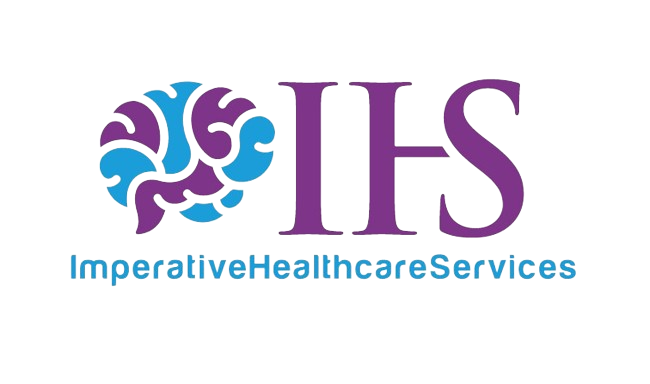Introduction
In the journey towards personal growth and fulfillment, emotional intelligence (EI) is a powerful tool that can help individuals navigate life’s challenges with greater resilience, adaptability, and self-awareness. At Imperative Health Services (IHS), we understand the transformative potential of nurturing emotional intelligence and are dedicated to empowering our clients with the skills and strategies they need to thrive.
As a full-service outpatient mental health clinic in Maryland, we offer a comprehensive range of services designed to support individuals in developing and enhancing their emotional intelligence. In this blog post, we will explore the concept of emotional intelligence, its key components, and practical tools you can use to cultivate greater self-awareness, empathy, and emotional regulation in your daily life.
What is Emotional Intelligence?
Emotional intelligence refers to the ability to recognize, understand, and manage one’s own emotions, as well as the emotions of others. It involves a set of skills that enable individuals to navigate social and emotional situations effectively, build strong relationships, and achieve personal and professional success.
The concept of emotional intelligence was first introduced by psychologists Peter Salovey and John Mayer in the 1990s and later popularized by author Daniel Goleman in his book, “Emotional Intelligence: Why It Can Matter More Than IQ.” Since then, extensive research has demonstrated the significant impact of emotional intelligence on various aspects of life, from mental health and well-being to academic and career success.
Key Components of Emotional Intelligence
Emotional intelligence is a multifaceted construct that encompasses several key components. At IHS, we focus on developing and nurturing these core skills to help our clients build greater self-awareness, empathy, and emotional regulation. The main components of emotional intelligence include:
- Self-Awareness: The ability to recognize and understand one’s own emotions, thoughts, and values, as well as their impact on behavior. Self-awareness involves being attuned to one’s inner experiences and being able to identify and label emotions accurately.
- Self-Regulation: The capacity to manage and regulate one’s emotions in a healthy and adaptive way. This involves the ability to control impulsive behaviors, cope with stress and adversity, and maintain emotional balance in challenging situations.
- Empathy: The ability to understand and share the feelings of others. Empathy involves being able to recognize and respond appropriately to the emotions of others, as well as being able to see things from their perspective.
- Social Skills: The ability to build and maintain positive relationships with others. This involves effective communication, active listening, conflict resolution, and the ability to work collaboratively with others towards common goals.
- Motivation: The drive to pursue goals and persist in the face of obstacles. Emotional intelligence involves the ability to harness emotions in service of personal and professional aspirations, as well as the capacity to delay gratification and maintain optimism in the face of setbacks.
At Imperative Health Services, our clinicians work closely with clients to assess their current levels of emotional intelligence and identify areas for growth and development. Through personalized treatment plans and evidence-based interventions, we help individuals cultivate these key skills and apply them in their daily lives.

Tools for Nurturing Emotional Intelligence
Developing emotional intelligence is a lifelong process that requires intentional practice and commitment. At IHS, we offer a range of tools and strategies to help individuals nurture their emotional intelligence and build greater self-awareness, empathy, and emotional regulation. Some of the key tools we recommend include:
- Mindfulness Practices: Mindfulness involves being present and aware of one’s thoughts, feelings, and surroundings in a non-judgmental way. Regular mindfulness
practices, such as meditation, deep breathing, and body scans, can help individuals develop greater self-awareness and emotional regulation.
- Journaling: Writing about one’s thoughts, feelings, and experiences can be a powerful tool for self-reflection and emotional processing. Journaling can help individuals gain clarity, identify patterns, and develop a deeper understanding of their emotional landscape.
- Cognitive-Behavioral Techniques: Cognitive-behavioral therapy (CBT) is an evidence-based approach that helps individuals identify and challenge negative thought patterns and beliefs that contribute to emotional distress. CBT techniques, such as cognitive restructuring and behavioral activation, can help individuals develop more adaptive ways of thinking and responding to emotional triggers.
4. Empathy-Building Exercises: Developing empathy involves practicing perspective-taking and active listening. Empathy-building exercises, such as role-playing, reflective listening, and empathy mapping, can help individuals develop greater understanding and compassion for others.
- Emotional Regulation Strategies: Emotional regulation involves the ability to manage and modulate one’s emotional responses in a healthy way. Strategies such as deep breathing, progressive muscle relaxation, and positive self-talk can help individuals regulate their emotions and maintain emotional balance in challenging situations.
- Social Skills Training: Building strong social connections and relationships is a key component of emotional intelligence. Social skills training, such as assertiveness training, conflict resolution, and effective communication, can help individuals navigate social situations with greater ease and confidence.
- Self-Care Practices: Taking care of one’s physical, emotional, and mental well-being is essential for nurturing emotional intelligence. Regular self-care practices, such as exercise, healthy eating, adequate sleep, and engaging in enjoyable activities, can help individuals build resilience and maintain emotional balance.
At IHS, we incorporate these tools and strategies into our comprehensive treatment plans, tailoring them to the unique needs and goals of each individual. Our clinicians provide guidance, support, and accountability to help clients develop and sustain these practices in their daily lives.

The IHS Difference: Collaborative Care Centered on You
The Benefits of Emotional Intelligence
Developing and nurturing emotional intelligence can have a profound impact on various aspects of life. Some of the key benefits of emotional intelligence include:
- Improved Mental Health: Individuals with high emotional intelligence are better able to manage stress, cope with adversity, and maintain emotional balance, leading to greater overall well-being and resilience.
- Stronger Relationships: Emotional intelligence enables individuals to build and maintain positive, supportive relationships with others. By developing empathy, effective communication, and conflict resolution skills, individuals can foster deeper, more meaningful connections with others.
- Enhanced Self-Awareness: Cultivating emotional intelligence involves developing a greater understanding of one’s own emotions, thoughts, and values. This self-awareness can lead to greater clarity, self-acceptance, and personal growth.
- Improved Decision-Making: Emotional intelligence enables individuals to integrate both rational and emotional information when making decisions. By being attuned to one’s own emotions and the emotions of others, individuals can make more informed, balanced choices.
- Increased Resilience: Individuals with high emotional intelligence are better equipped to bounce back from setbacks and challenges. By developing effective coping strategies and maintaining a positive outlook, individuals can navigate life’s ups and downs with greater ease and adaptability.
At Imperative Health Services, we are committed to helping individuals unlock the transformative potential of emotional intelligence. Through our comprehensive range of
services and evidence-based interventions, we empower clients to develop the skills and strategies they need to thrive in all aspects of their lives.
Take the First Step Towards Emotional Empowerment
If you’re ready to nurture your emotional intelligence and unlock your full potential for personal growth and fulfillment, we invite you to take the first step and reach out to Imperative Health Services. Our compassionate, skilled team is here to support you on your journey towards greater self-awareness, empathy, and emotional regulation.
To learn more about our services or to schedule an appointment, please don’t hesitate to contact us at +1 (301) 357-4794 or visit our website at www.imperativehs.com. We look forward to partnering with you and helping you cultivate the emotional intelligence skills that will serve you well in all aspects of your life.
Remember, developing emotional intelligence is a lifelong journey, but one that is well worth the effort. By investing in your emotional well-being and seeking support when needed, you can build the resilience, self-awareness, and empathy that will enable you to navigate life’s challenges with greater ease and fulfillment.
At Imperative Health Services, we’re committed to walking alongside you on this journey, providing the expert guidance, compassionate care, and evidence-based tools you need to thrive. Together, we can harness the power of emotional intelligence to create a brighter, more empowered future.
Don’t wait another day to start nurturing your emotional intelligence – reach out to IHS today and take the first step towards a life of greater self-awareness, empathy, and emotional empowerment.

